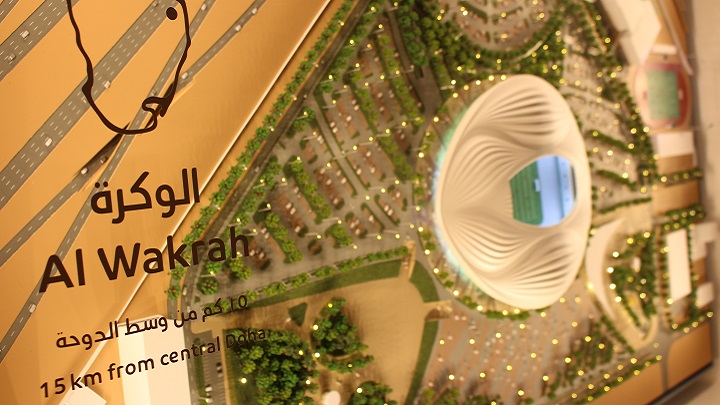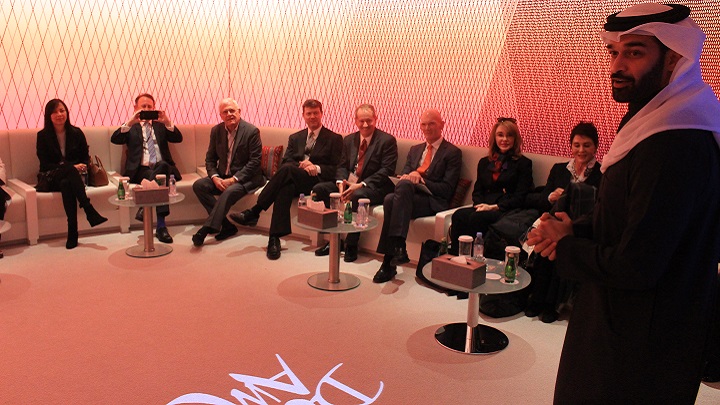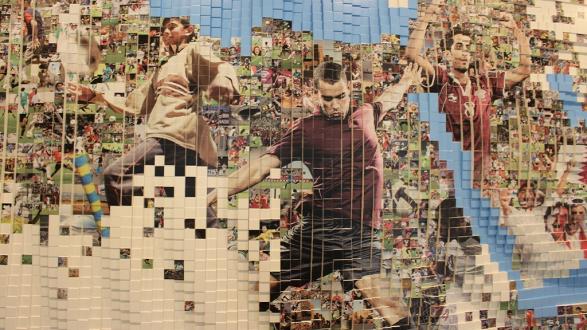The following is part of a series of reflections from a recent Pacific Council Country Dialogue to the Arabian Peninsula.
____________________
In a recent meeting with H.E. Hassan Al Thawadi, the Secretary General of Qatar's Supreme Committee for Delivery & Legacy (the body in charge of planning and operations for the 2022 FIFA World Cup), Pacific Council delegates discussed Qatar's mission to "transform perceptions of the Middle East through sport."
In 2010, Qatar won the bid to host the 2022 World Cup, beating out the United States, South Korea, Japan, and Australia. The bid itself was not without controversy: allegations over bribes paid to several FIFA officials prior to the vote caused considerable tension in football's governing body. Qatar has maintained that the allegations are baseless.
"This is the first World Cup in the Middle East, the Arab world, and the Islamic world. There is no other event that has the sort of power that the World Cup brings."
H.E. Hassan Al Thawadi
Qatar's current vision for the competition goes far beyond the event itself. The country aims to transform global perceptions of the Middle East region.
"We need platforms to unify people and bring people together," explained Al Thawadi. "This is the first World Cup in the Middle East, the Arab world, and the Islamic world. There is no other event that has the sort of power that the World Cup brings."
He explained that for Qatar, the purpose behind the bid was for the world to see the real Middle East.
"When they come here, they interact with the average individual from the Arab world,” said Al Thawadi. "That's essential for us. Breaking barriers starts from the bottom, from the grassroots." But the competition will also help people in the region break down their biases and preconceptions about the West, he said.
"When people from the Middle East talk about the West in particular, especially the United States and England, the first thought is usually, 'people are coming over here to change our way of life, to invade our way of thinking.'" Engaging through sport, he argued, provides an opportunity to change that bias.
On costs and infrastructure development
Delegates learned that the total infrastructure cost for the World Cup in Qatar is estimated at about $200 billion. But Al Thawadi noted that this cost includes long-term infrastructure investments like railway and roads, which will benefit the country for decades to come. He explained that for Qatar, it's not just about the immediate bottom line.
"The way we look at the World Cup today, one of our main goals is to diversify our economy," he said. "We’re looking at developing, for example, the sporting industry in Qatar."

Qatar's stadium budget stands at a whopping $7 billion. As with prior host nations, Qatar faces the question of what happens to those structures once the event ends: in Brazil, for example, many of the stadiums built for the Rio 2014 World Cup now stand empty. The Supreme Committee aims to avoid that issue with modular seating: the upper tiers of the stadium will be composed of modular stands that can be reconfigured into smaller stadiums and donated to developing nations throughout the world.
Worker welfare a work in progress
Delegates were eager to learn about worker welfare standards in Qatar for the World Cup. In a report published in 2016, Amnesty International revealed abuses in Qatar's preparations for the competition, based on 132 accounts from workers. Every worker in the report claimed a human rights abuse.
Al Thawadi acknowledged these reports and the reported condition of the migrant workforce, saying that the Supreme Committee has been trying for years to come up with a strategy to ensure migrant worker protections and enforce penalties against third-party contractors if they run contrary to those protections.

"The issue of improving the conditions for expatriate laborers is part of the guiding force for us when it comes to the World Cup and leaving a legacy," said Al Thawadi. "So from early on we included in our plans steps to try to improve the situation for workers who are involved in the World Cup."
The migrant work force preparing for the World Cup in Qatar is expected to grow to more than 36,000 by 2018.
____________________
Read more reflections from our Country Dialogue to the Arabian Peninsula.




